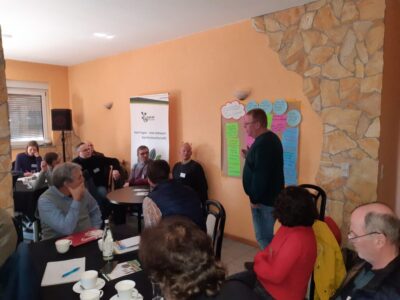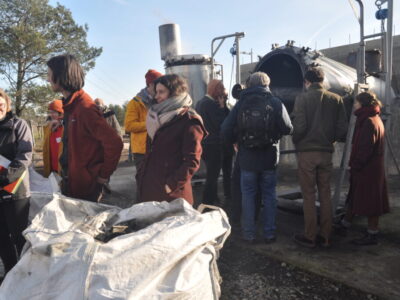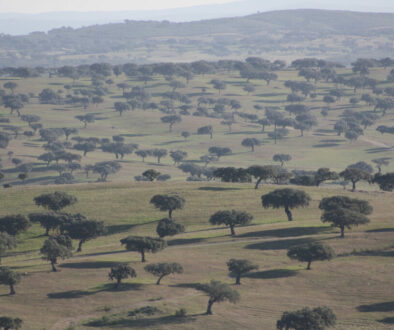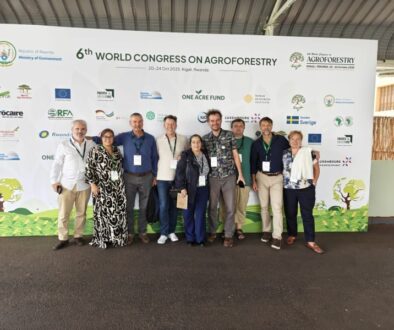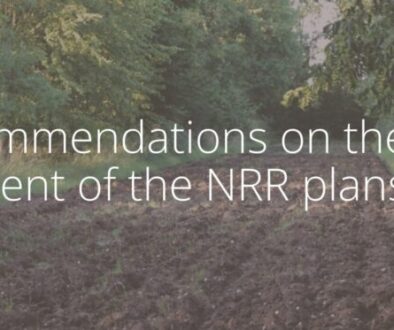Workshop on biochar as a component of an agroforestry-based circular economy
Credits: DeFAF – Deutscher Fachverband für Agroforstwirtschaft
The production and use of biochar is a much-discussed topic, especially in relation to climate protection measures. In order to shed more light on the potential and challenges for its application in agroforestry systems, the German Agroforestry Association (DeFAF e.V.) in cooperation with the University Cottbus-Senftenberg and the agroforestry farmer Thomas Domin invited to a workshop on this topic on February 16, 2023 in Peickwitz, South Brandenburg. The event, which was organised in the frame of the research project AgroBaLa that focuses on the promotion of climate resilience in the agricultural sector through agroforestry, attracted more than 30 people who showed great interest in the workshop topic.
Before the interactive exchange on three sub-topics in smaller working groups, several technical contributions were part the program. Julia Günzel from the DeFAF briefly explained the background to the AgroBaLa project and connected to that the reasons for the workshop. Thomas Domin as farm manager and host of the event presented the farm and ist agroforestry systems that have been established several years ago. Afterwards Dr. Nikolas Hagemann, scientist at Agroscope, managing director of Ithaka gGmbH and board member of the Biochar Association e.V., gave a vivid introduction on the subject of biochar with a focus on agriculture. In addition to current trends and the possible forms of application, he also explained how important it is to acknowledge biochar as an official component of fertilization in order to further establish its use in agriculture (and agroforestry) in the long term. Joachim Böttcher, a producer of biochar substrates for several years, who also actively implemented agroforestry on his farm, then reported on his experiences in the area of humus formation in the soils with the help of biochar. He also described some of the currently available technologies for the production of biochar and showed how this can be regionally implemented on the basis of some examples.
The technical contributions provided a lot of material for discussion and raised questions that could not all be answered conclusively, due to the fact that the the use of biochar in agriculture in Germany is a relatively new method. The discussions that followed were all the more active in the three workshop groups. These dealt with the possibilities and limits of biochar production on farms, the biochar value chain and the associated regional actors as well as with the potential of biochar for humus formation and soil improvement. Quite some questions could be clarified, new ideas and experiences for the practical implementation were exchanged – elsewhere new questions came up, which showed that t a great need for further exchange of experience still exists.
After a lunch break the participants were able to visit the pyrolysis plant belonging to the farm by Thomas Domin and installed as part of the project AgroBaLa. Dr. Penka Tsonkova and Dr. Christian Böhm from the University Cottbus-Senftenberg explained the project background to the system and the experimental design for testing the possible uses of the biochar in the farm-owned agroforestry systems. A setback, which also shows that suitable solutions at this scale are still missing in some cases: the envisaged cascaded utilization of altogether four pyrolysis furnaces turned out to be not applicable, so that only two furnaces are currently being used. Thomas Domin described his experience in the practical application with this type of pyrolysis plant and also the challenges involved. The workshop program finally concluded with a visit to the agroforestry systems of the farm and altogether offered diverse and extensive information as well as room for inspiring discussions.
